The 2019 World Onigiri Championships were held at IUJ on April 27th
The 2019 World Onigiri Championships were held at IUJ on April 27th as part of the university’s annual International Festival. The onigiri championship inviting teams to put a their own spin on the familiar Japanese rice ball, with unique recipes containing flavors and ingredients from all corners of the globe.
This year’s event was a competition between nine teams. Six of those teams were comprised of IUJ students, and the remaining three included competitors from the local restaurant Kodamaya, Uonuma Satoyama Nouen (USN), and rice production company Meshitoku. The judging panel included esteemed guests such as IUJ’s President Dr. Hiroyuki Itami, the Mayor of Minamiuonuma City, the president of the Yamato Chamber of Commerce, and the the director of Japan Agriculture’s Minamiuonuma Branch.
The Teams
Team Nile Valley
Team Nile Valley was made up of IUJ students from neighboring countries Egypt and Sudan, both connected by the Nile River. Their onigiri consisted of chicken sausage, a common national food of both countries, cooked with colored peppers, various seasonings, and mayonnaise.
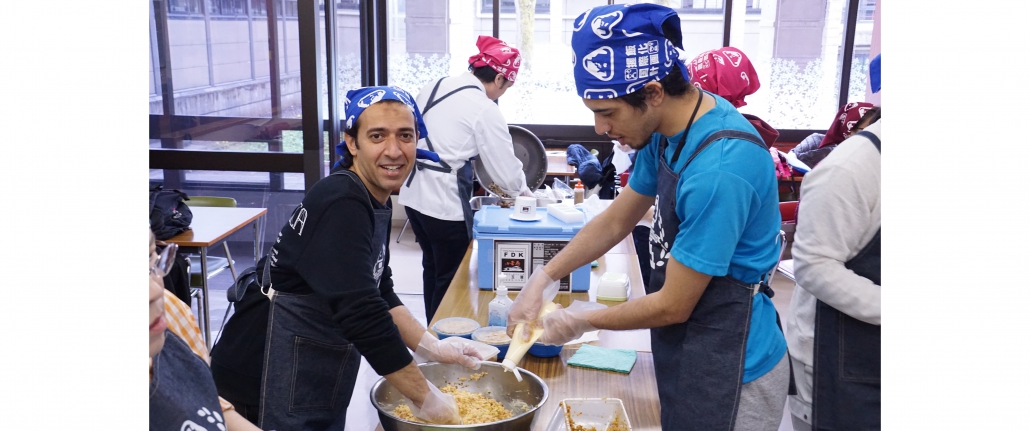
Team Laos
Team Laos created a Aok Kai onigiri, modeled after the famous Laotian dish of the same name. Aok Kai is a spicy mixture of chicken cooked with various herbs and spices, including galangal, ginger, garlic, chili and kaffir lime leaves.
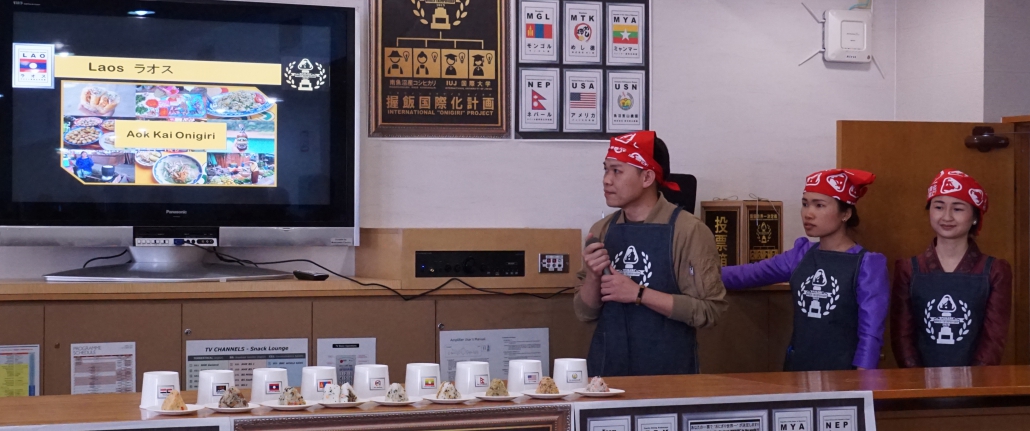
Team Mongolia
Team Mongolia served up a mutton onigiri. Mutton is the most commonly used meat in the country, and the team explained to the audience that Mongolian sheep eat many different medicinal plants, so mutton meat is often consumed there to combat lethargy and other ailments. Their mutton onigiri was seasoned with cumin, salt, pepper, and onion, and garnished with sesame seeds.
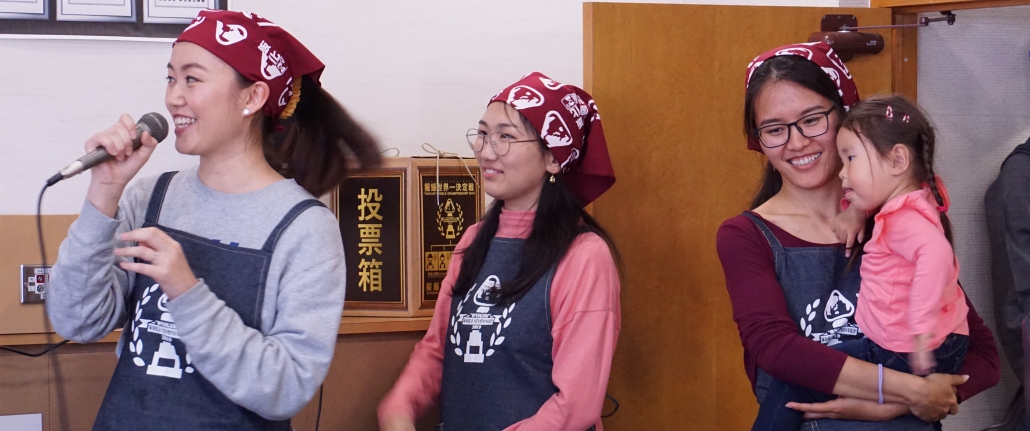
Team Myanmar
Team Myanmar named their onigiri the “Shan” onigiri, inspired by flavors unique to the Shan State of the country. They incorporated fish in their recipe in recognition of Lake Inle, Myanmar’s second largest lake. The lake has several species of fish and other marine life that are not found anywhere else in the world.
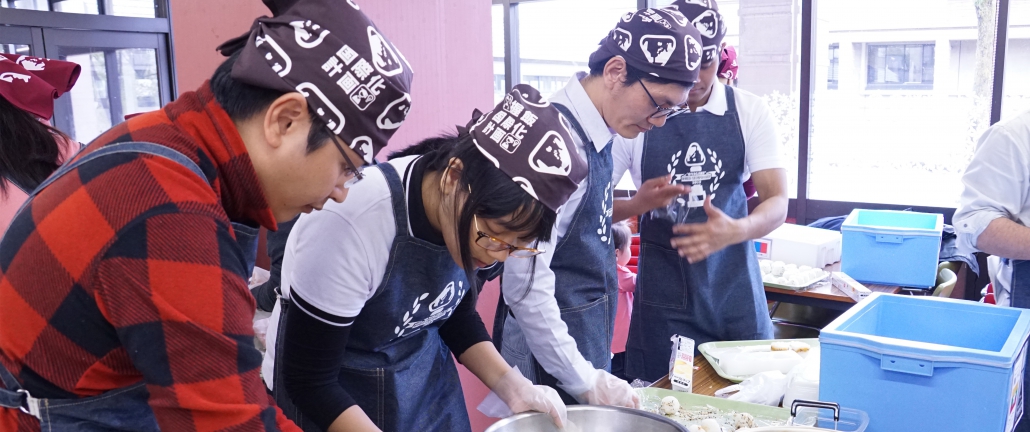
Team Nepal
Team Nepal created their Royal Mutton Masala onigiri, and drew inspiration from biryani, a rice dish which is popular in the country. Biryani contains spices including turmeric, cardamom, ginger and garlic, and they used these flavors alongside mutton meat and koshihikari rice for their creation.
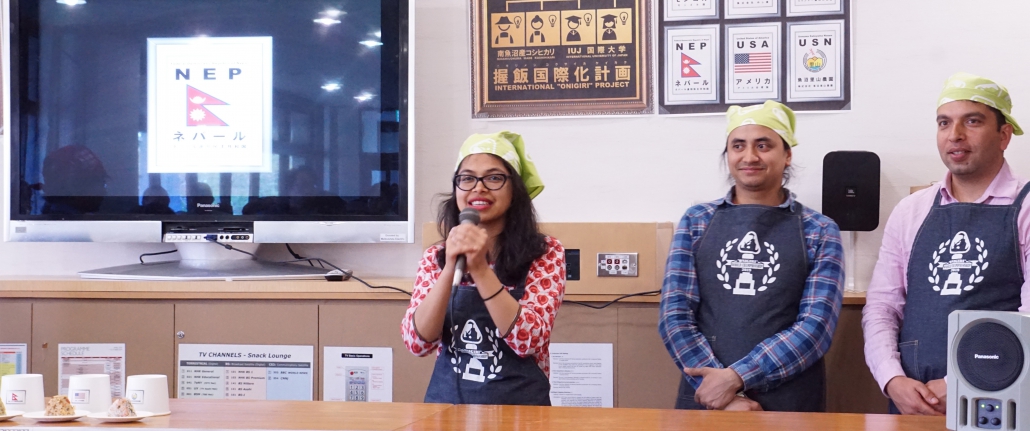
Team USA
Team USA was up next with their Tex-Mex onigiri. Tex-Mex is a common fusion cuisine found in the southwest portion of the United States, and brings out many elements of Mexican cuisine with an American spin. The team’s onigiri combined three basic ingredients: beef taco meat, pico de gallo (chopped tomatoes, onion and cilantro), and local koshihikari rice.
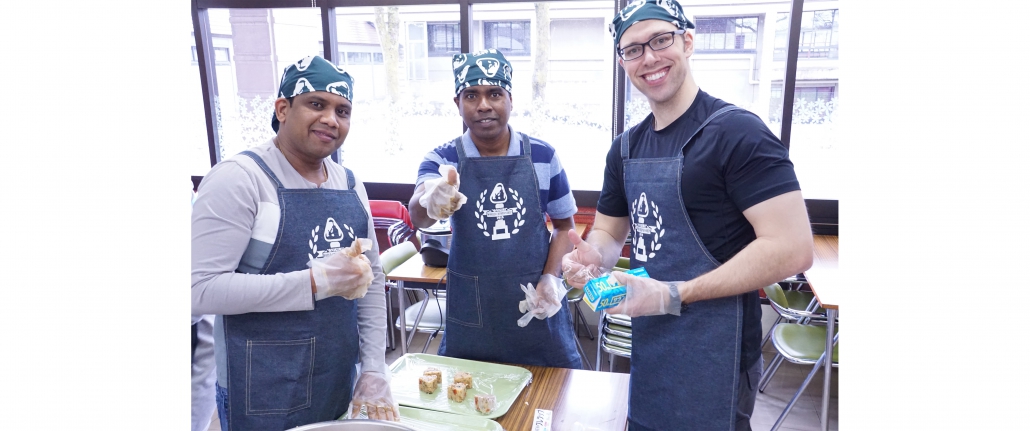
Team FDK
Team FDK (Family Dining Kodamaya) created their “Megumi no Onigiri”, which contained Niigata Beef and locally grown mushrooms. They also used a popular seasoning from their restaurant to flavor the onigiri.
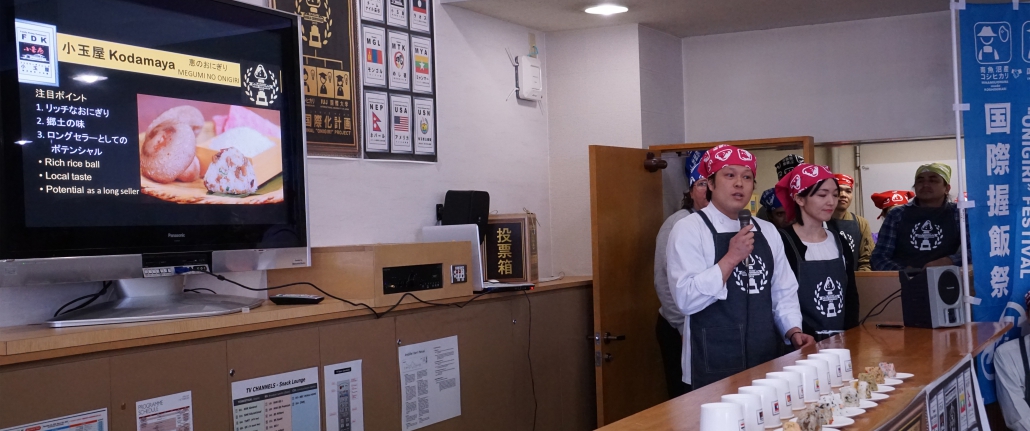
Team MTK
Team MTK (Meshitoku) made a salted mackerel onigiri, topped with sesame seeds and plum paste. They were confident that the flavors and aromas of the sesame seeds and plum paste would mean that even those who don’t usually enjoy fish could appreciate their creation.
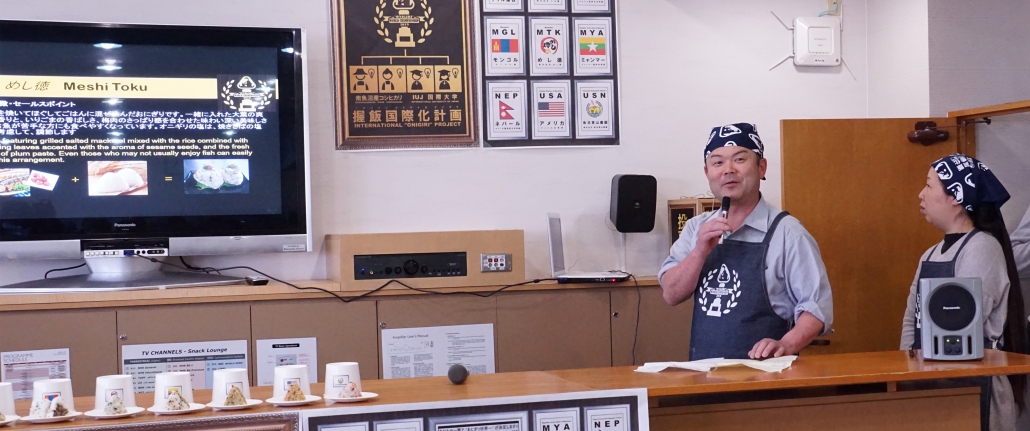
Team USN
Team Uonuma Satoyama Nouen (USN) opted to create a kirizai onigiri. Kirizai is a local food popular to the Minamiuonuma region, and the team’s onigiri incorporated kirizai ingredients including green radishes, dried sardines and shrimp into their recipe.
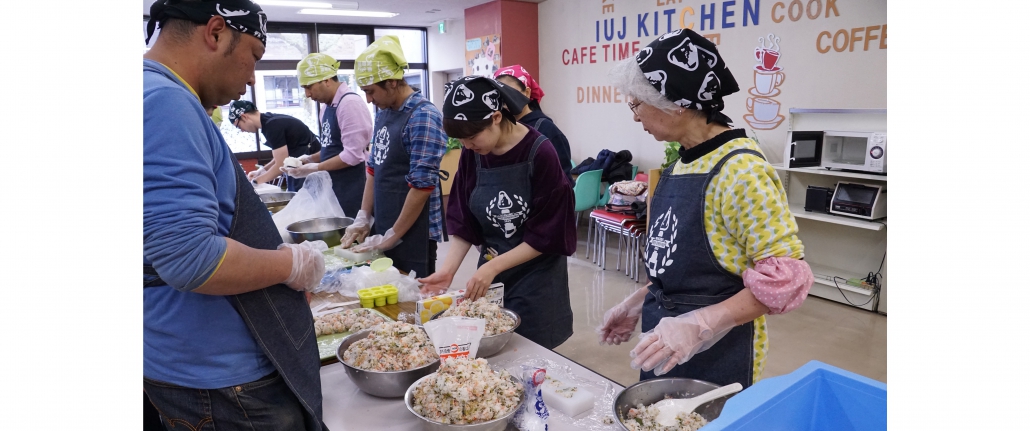
Taste testing and awards ceremony
The judging panel listened to the presentations by each of the teams, and sampled all the onigiri, which each judge selecting his or her favorite for a special “Judge’s award.” The teams also made several hundred onigiri each to hand out to festival attendees, who were then invited to cast ballots for their favorite.
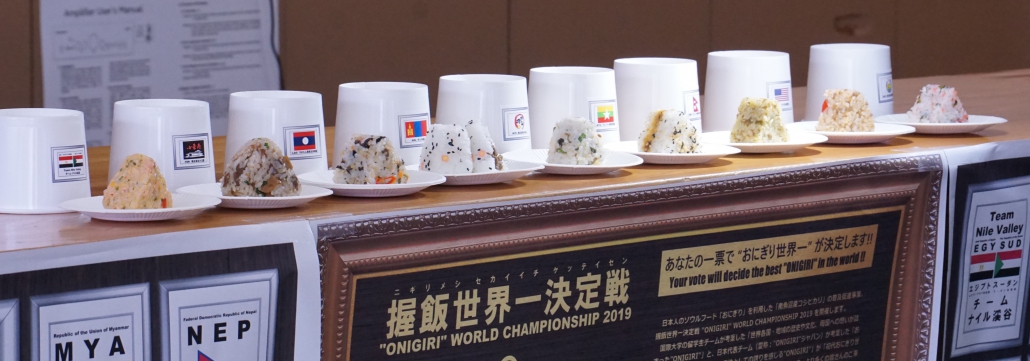
Later in the day, a presentation was held to recognize the participants and hand out awards to the teams involved. There could only be one grand champion though, and the top prize was taken by Team Laos with their spicy Aok Kai Onigiri!
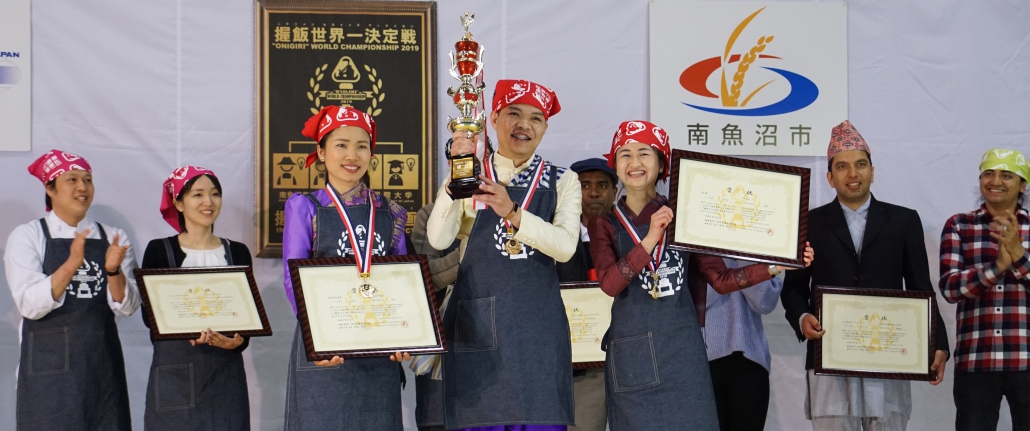
IUJ students share their culture through food with their peers on a daily basis, and the World Onigiri Championships extended this unique opportunity to the local community.
We thank everyone who participated in the event, from those who created the onigiri to everyone who watched the presentations and enjoyed some of the onigiri for themselves. We also thank the judging panel for their attendance, encouragement and support for this one of a kind competition.
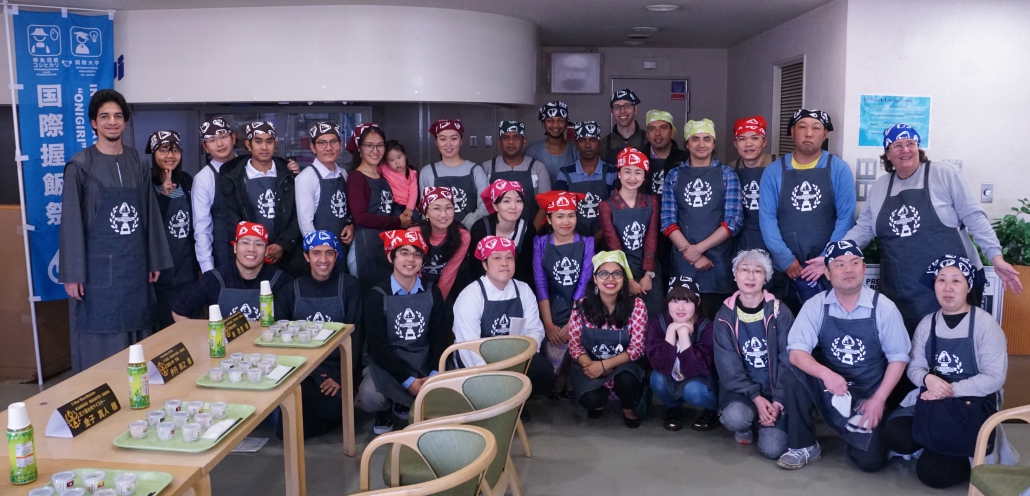
=====
Public Relations
Office of Admissions and Career Support
media@iuj.ac.jp
=====


